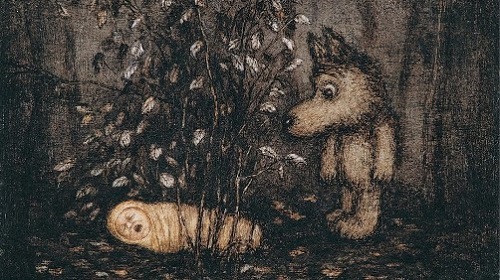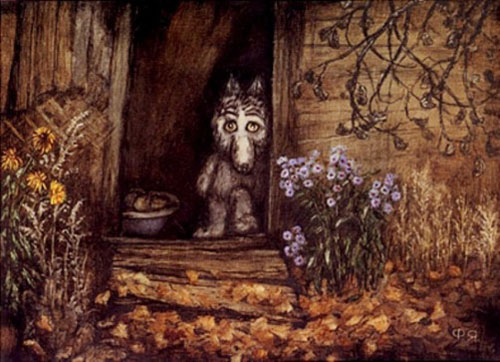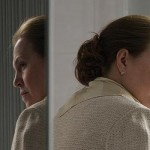By David Pountain
Director: Yuri Norshteyn
At the 1984 Los Angeles Olympic Arts Festival, a large international jury of critics and animators voted Yuriy Norshteyn’s 1979 short, Tale of Tales, the greatest animated film of all time. In 2002, a jury at the Zagreb World Festival of Animated Films awarded Norshteyn’s film the same honour. Yet Tale of Tales remains a strangely underseen work of painstaking brilliance that will resonate with anyone willing to let it play with their subconscious. It’s an often melancholy creation that’s steeped in ambiguity but there’s a warm familiarity to it – like watching a half-remembered picture book from your childhood come to life before your eyes.
Like that other great Soviet film of the 1970s, Andrei Tarkovsky’s Mirror, Tale of Tales is an exploration of its director’s own distorted memories. With a free-associative structure, the film drifts between several parallel settings to create a profound if obscure picture of a personal (and, by extension, national) history. A young girl plays jump-rope with a bull. A young boy eats an apple with some crows until his alcoholic father drags him away. Women and men dance beneath a streetlight to a World War II era tango, with each skip of the record signalling another man lost to the ravages of war. A sweet but distrusted wolf wanders lonely through a forest. The film feels like a raw extraction from its creator’s mind, meaning that it’s difficult to determine the precise significance of individual scenes. Luckily, you don’t have to entirely understand the ideas behind Norshteyn’s network of cinematic rabbit holes to get lost in it, especially when it all looks this good.
A perfectionist if ever there was one (he’s been working on his feature film debut since 1981), Norshteyn is a painter and filmmaker who believes that the full potential of animated cinema has yet to be realised, and Tale of Tales is clearly the work of a man trying to push the medium to its limits. Every frame feels lovingly crafted and deeply personal in a way that a larger team of animators could never recreate. This is essential viewing for anyone interested in what animation can be when it strays from post-Disney convention. Its vague but remarkably human images are like ready-made memories, waiting to embed themselves into your mind. Tale of Tales is immediately arresting but it’s also a film that only grows stranger and more beautiful in the days after seeing it.






